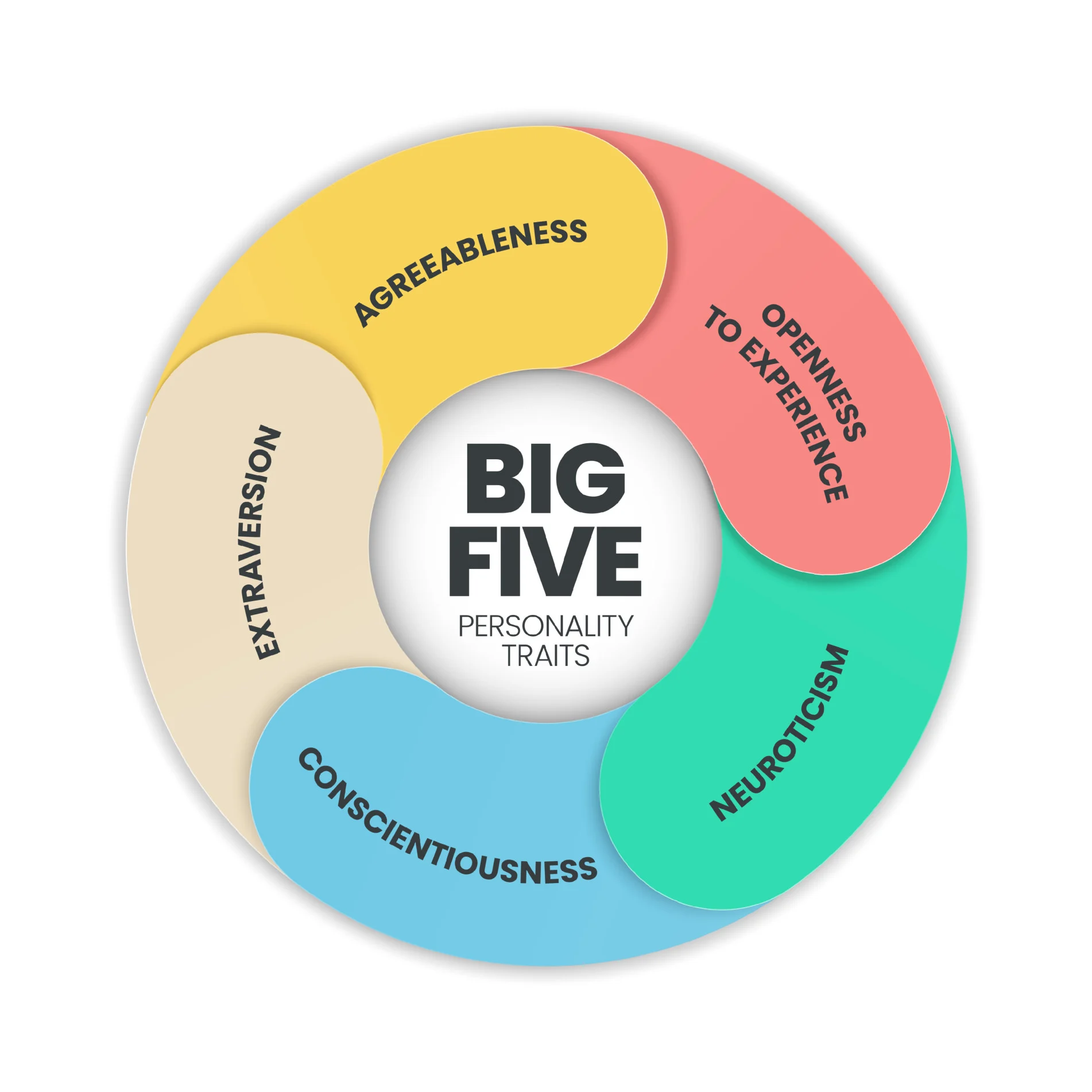Why learn about personality?
The main reason you should understand personality psychology is because you are a person who is part of a social world, full of connections. You have a personality and so does everyone else. People have to function within this complex social world and to do so in a productive way, knowing our own personality and those with which we come into contact with on a daily basis, can help immensely.
When working together to solve problems, not all people see the world in the same way, so having different personalities working on the problem is extremely beneficial, because everyone see the problem from different perspectives.
Learning about what personality is and how it functions can help you understand yourself and those around you. Understanding personality psychology can help you navigate interactions with others more successfully.
What is the OCEAN Personality System?
The OCEAN personality system is unique in that it doesn’t put different personalities in different categories, but rather scores people on a spectrum from 0 – 100. There are five different personality traits that make up an individual’s personality, they are:
- Openness
- Conscientiousness
- Extroversion
- Agreeableness
- Neuroticism
If the first letter of each word is taken it spells OCEAN, hence the name of the personality system. Now let’s explore each of these five traits in more detail, shall we?

Openness
Openness to experience is the Big Five personality trait associated with intelligence, creativity, abstract thinking, and artistic interest.
Open people are described as original, imaginative, creative, complex, curious, and having broad interests. People who are high in openness to experience are motivated by ideas and/or aesthetic experience for its own sake and tend to orient their worlds around such pursuits. They enjoy the beauty of nature, believe in the importance of art, are reflective, become deeply immersed in music, enjoy poetry, are highly emotional, need a creative outlet, and see the beauty in things that other people may not notice.
People who are lower in openness are described as conventional, concrete, uncreative, simple, incurious, and have narrow interests.
People who are high in intellect are quick to understand abstract ideas, can handle a lot of information, solve complex problems, enjoy philosophical discussions, read often, and think quickly. The aspect of intellect is the personality reflection of IQ. People who are intelligent tend to seem interested in and competent at manipulating ideas.

Conscientiousness
Conscientiousness is the Big Five personality trait associated with work and organization. It is composed of two aspects: industriousness and orderliness.
Industrious people carry out their plans, avoid wasting time, finish what they start, and always
know what they are doing. They are typically hard-working. Traits of industrious people include:
● Carry out my plans
● Don’t waste time
● Don’t find it difficult to get down to work
● Finish what I start
● Get things done quickly (don’t postpone)
● Always know what I’m doing
● Not easily distracted
Orderly people keep things tidy, use a schedule, and like routines and details. They are often
described as clean and organized. Traits of orderly people include:
● Tidy
● Like order
● Bothered by messy people
● Want everything to be just right
● Bothered by disorder
● Like routine
● See that rules are observed
● Want every detail taken care of

Extroversion
Extraversion is the tendency to experience positive emotion. It’s composed of two aspects: enthusiasm and assertiveness, which are two correlated, but distinct, subsets of behavior. Enthusiastic people talk a lot, make friends easily, smile more often, and more
quickly reveal their feelings. Assertive people take charge, influence people, lead the way, and like to share their opinions.
To understand extraversion, it helps to understand the psychological problem extraversion helps us solve, which is how much to value the present. High extraversion and low extraversion are
two different solutions to this problem. In some environments, high extraversion is the best solution while low extraversion is better in others. Because we solve the problem of how to weigh the present against the future with our temperaments, it’s helpful to think about this at the population level. A population of humans with a normally distributed tendency to experience positive emotion about the present is likely to be able to handle the changing environment and therefore adapt to their current situation.

Agreeableness
Agreeableness is the tendency to weigh others’ interests against your own. The trait is composed of two aspects: compassion and politeness. People who are high in compassion are interested in others’ needs and problems. They are sympathetic and generous with their time, and they are more likely to take the interests of others into account. Compassionate people often:
1. Feel others’ emotions
2. Inquire about others’ well-being
3. Sympathize with others’ feelings
4. Not indifferent to the feelings of others.
5. Take time for others.
6. Take an interest in other people’s lives
7. Have a soft side
8. Like to do things for others
9. Interested in other people’s problems
People who are high in politeness have respect for authority. They are not pushy or insulting
and are careful with their words. Polite people often:
10. Respect authority
11. Don’t believe I am better than others
12. Hate to seem pushy
13. Don’t take advantage of others
14. Avoid imposing will on others
15. Rarely put people under pressure
16. Avoid insulting people
17. Avoid conflict
18. Not out for personal gain
Like all personality traits, agreeableness evolved to help us solve certain kinds of problems. Although extraversion predicts social behavior, agreeableness is a social dimension of personality as well. Agreeableness solves the social problem of how much to weigh your
own interests against those of others. Someone who is agreeable will value others’ interests more than their own, while the opposite is true of someone who is disagreeable.

Neuroticism
Neuroticism is the personality trait associated with negative emotion. Negative emotion covers a wide range of traits, including frustration, disappointment, grief, pain, threat, uncertainty, and anxiety. The trait is composed of two aspects: withdrawal and volatility.
● Withdrawal: People who are high in withdrawal can be described as anxiety-prone, self-conscious, depressive, and easily overwhelmed. People who are low in this trait can be described as calm, reasonably happy, and self-confident.
○ Withdrawal measures the freeze response, which causes physiological hyper-preparation coupled with paralyzing fear. When a person is “frozen”, their
heart rate goes up and their muscles prepare to move.
● Volatility: People who are high in volatility can be described as touchy, easily irritated,
and unstable. People who are low in this trait can be described as stable, easygoing, and slow to anger.
○ Volatile behavior is exemplified by a driver cursing while stuck in bad traffic.
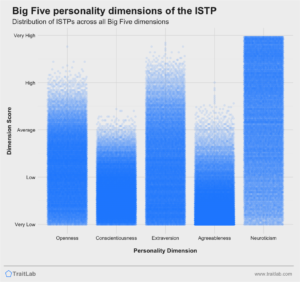
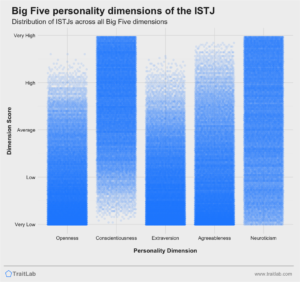
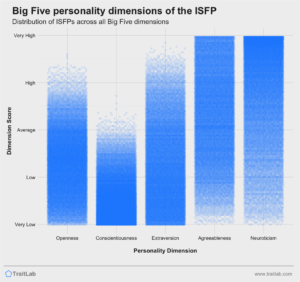
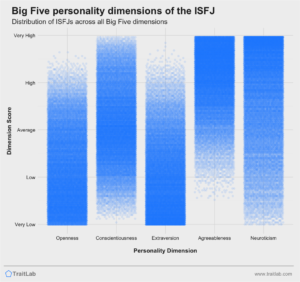
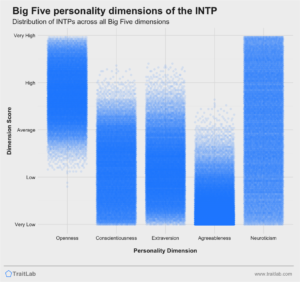
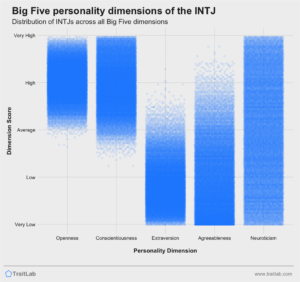
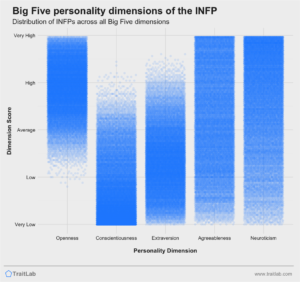

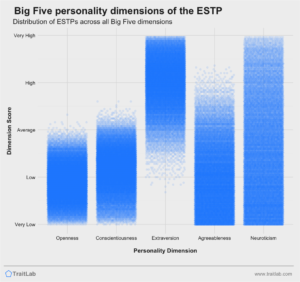
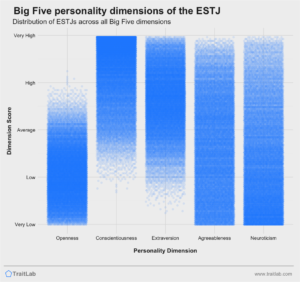
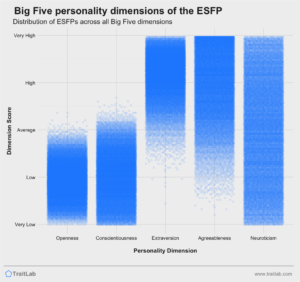
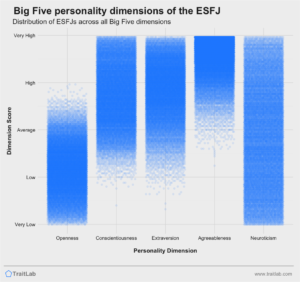
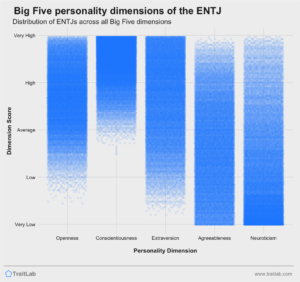
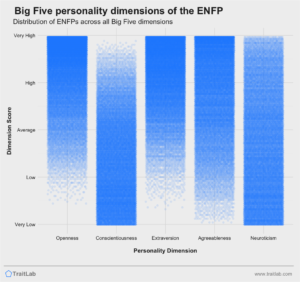
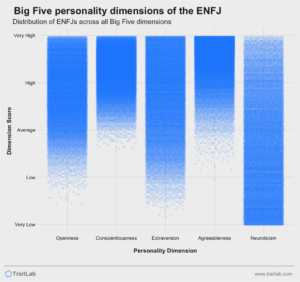
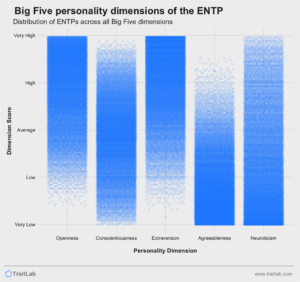
References:
J. Peterson, website, https://understandmyself.com/get-understand-myself?gad_source=1&gclid=Cj0KCQiA2KitBhCIARIsAPPMEhIHwQk1MWXT-qFUDDxasF_NoqycQyOFOQDKokYsCf9ATpN3ys3n5J4aApPIEALw_wcB, accessed 19/01/2024

